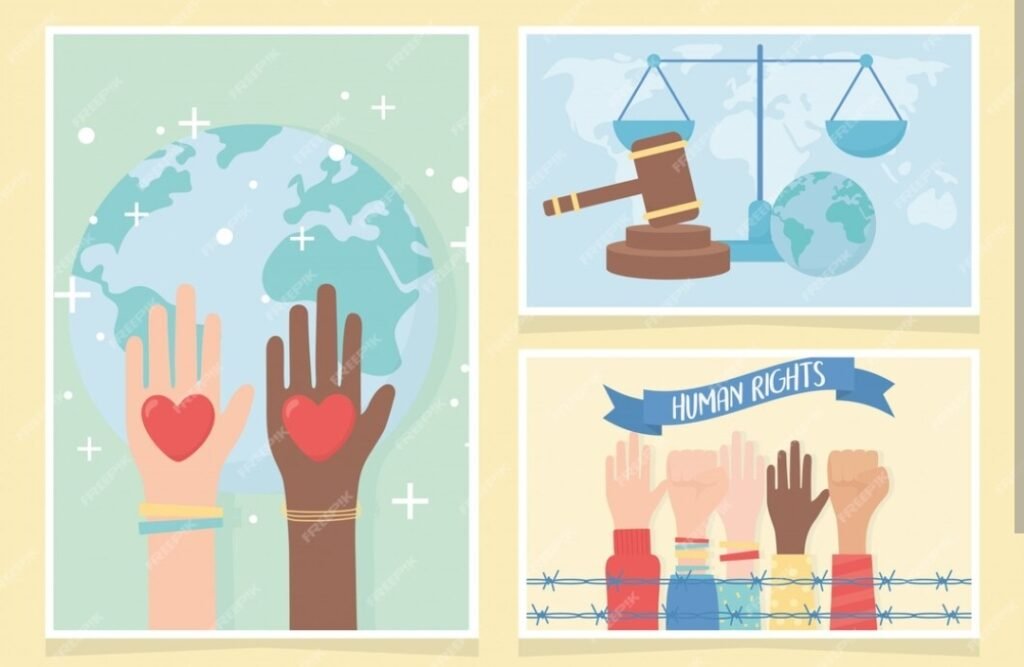The International Human Rights Law aims to defend fundamental human rights across the world through a string of treaties, conventions, and principles embraced by United Nations member states.
Its service has been questioned over the years. While it has succeeded in selecting international legal standards and norms regarding civil, political, economic, social and cultural rights, many claim that it lacks useful implementation and enforcement mechanisms. Nations often fail to include international human rights accords in their domestic legal frameworks.
There are also problems with a lack of political will by strong nations, insufficient resources for monitoring, and dominance concerns raised by countries. As a result, extreme human rights breaches continue to take place in many aspects of the world. This boosts doubts about the true impact and power of the International Human Rights Law in enhancing the lives of people globally.
What is the international law of human rights?
The international human rights law guides to the body of international law created to elevate and protect human rights on both national and international levels. It uncovers its legal basis in compacts, traditional international law and general principles of law.
The essential aspects of this body of law are the Universal Declaration of Human Rights and core international human rights covenants adopted by the UN General Assembly, along with their mechanisms of implementation, monitoring and complaint procedures at the international level.
Why is the international human rights law important?
International human rights law is important for several key reasons. It promotes fundamental human rights and dignity for all people regardless of nationality. The laws and standards help to protect vulnerable groups from exploitation and violence globally.
Promotes Fundamental Rights and Dignity
The laws specify basic rights that all humans are permitted to, such as life, liberty, and autonomy of speech. They protect individuals from severe rights abuses. By setting core standards, they affirm the inherent worth and dignity of every person. International human rights norms aim to restrict conflict and atrocities between states and within countries.
Ways international human rights law has been effective
The International Human Rights Law has been useful in several ways. The Universal Declaration of Human Rights set meaningful universal standards and criteria concerning civil, political, economic, social and cultural rights. This was also strengthened by the development of core compacts like the International Covenant on Civil and Political Rights (ICCPR) and the International Covenant on Economic, Social and Cultural Rights (ICESCR).
Mechanisms like the UN Human Rights Council support in surveying compliance and facilitating reporting of human rights conditions in countries. Over the years, there has been improved conformity to international human rights norms among many nation-states.
Limitations and challenges to effectiveness
- Lack of central enforcement authority or global court for binding dispute resolution
- Reliance on self-reporting by states and lack of transparency in reporting
- Sovereignty concerns of states limit external oversight and intervention
- Powerful nations can ignore international regulations and treaties with no consequences
- Issues of cultural relativism cited by some states to resist international standards
- Resource and funding constraints of UN mechanisms to effectively monitor all countries
- Politicization of human rights issues dilutes objective deliberations
FAQ’s
What are some of the mechanisms for monitoring human rights under international law?
Key monitoring mechanisms include the UPR, treaty bodies, special rapporteurs, and individual complaints procedures.
What are some criticisms of the effectiveness of the international human rights regime?
Criticisms focus on weak enforcement, reliance on states’ consent, and inability to forcibly intervene or stop crises.
Conclusion
While the International Human Rights Law has succeeded in establishing important global standards and increasing recognition of rights norms over time, there remain significant challenges that hamper its effectiveness. The lack of central enforcement and reliance on state compliance weakens deterrence. Moving forward, strengthening oversight and ensuring more accountability for powerful nations will be key to the laws truly protecting people worldwide from abuse of their basic rights and freedoms. Overall, its impact can still be improved.
